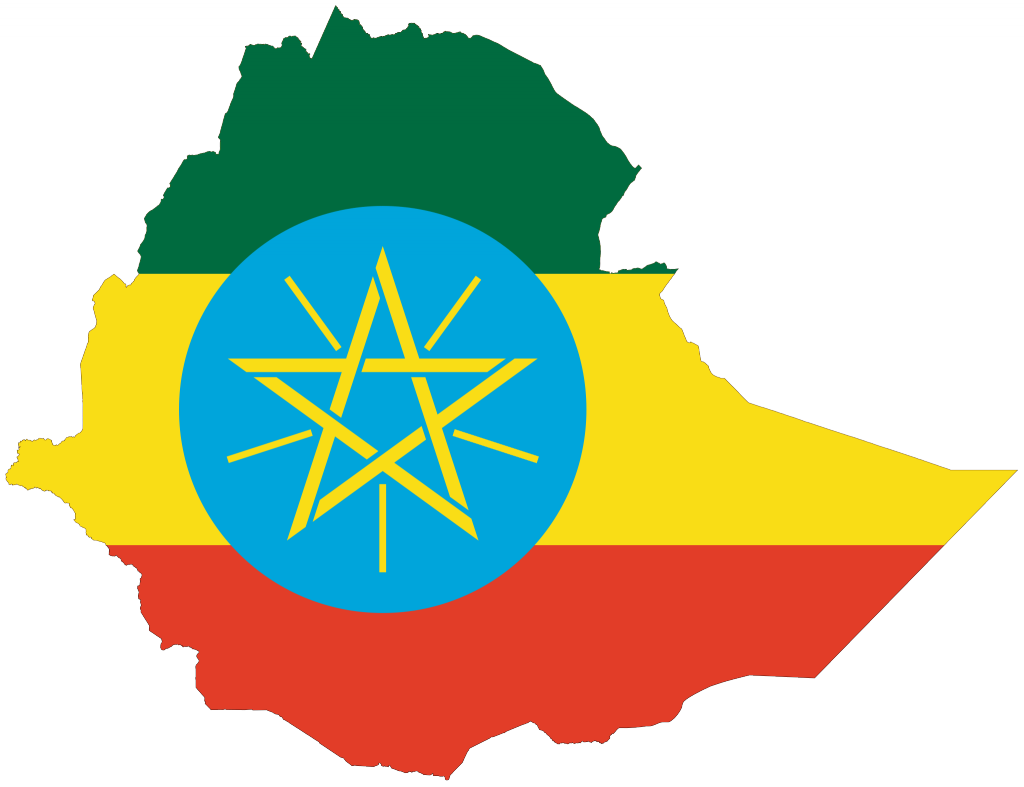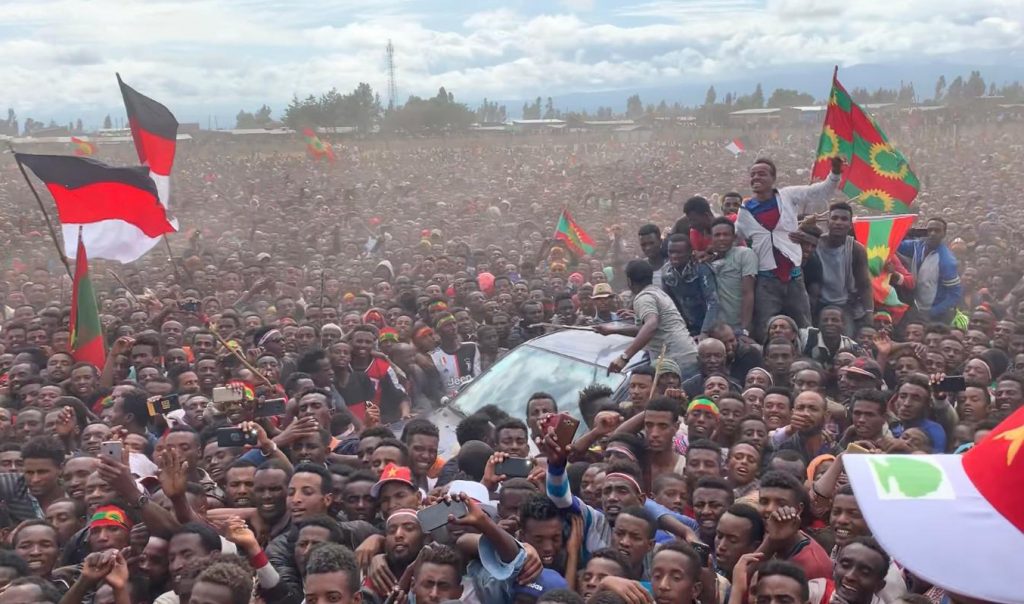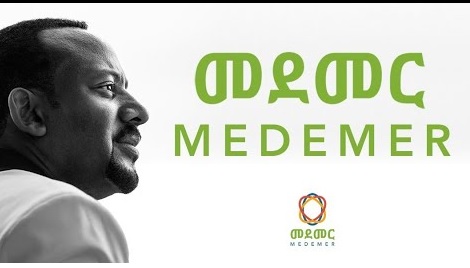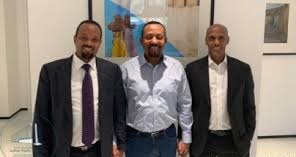By Mohamed Awale
Here we go again: a persistent political turmoil, a brutal assassination of a prominent artist, an eruption of street violence and obfuscation of who is at fault or who is not. Overall, in the ensuing street uprising, a death of 260 people and destruction of property worth millions of dollars were reported so far. We may never know who did what or why in the latest bouts of violence in the country but what we do know for sure is the modus operandi itself if the past is any guard. What we are seeing right now is not necessarily new nor an isolated event as a casual observer would assume, but a recurrent of political strife and the absence of credible answers from the regime and abject institutional failures, which are perhaps as old as the nation’s history itself over the last hundred years of its existence.
“Prison of Nations”

So you wonder what the likely causes of these persistent political crises and conflict are. Starting from Minilik’s ascent to power in the late 19th century and through subsequent of forced amalgamation and occupation of the various independent territories, the system of government and coexistence of different nations and ethnic groups within the empire has never anything but an easy task for a couple of reasons: the primary factor was the faulty foundation of Abyssinian state itself, which is firmly anchored on and guided by expansionist policies with little regard to the consent, needs and rights of the conquered masses from the get-go.
The ruling class has never strived to find out holistic political solutions or envisioned an honest coexistent formula – -federalism, political participation, equality, or any other viable socio-economic model – – among the disparate and conquered communities. It was all about short cuts to hold onto the power and retaining it at any cost, and with the help of blatant ethnic chauvinistic policies. To put it differently, Ethiopia state was and still is a “prison of nations “ according to Wallelign Mekonen, a prominent students activist in the 1960s What’s more, always on the lookout for quixotic geostrategic interest, the influence of the West and foreign actors seldom played a positive role in the matter. Not that there were lack good opportunities that came across for crucial political reforms to take roots and redress the archaic of politico and socio-economic inequality of the system, but those opportunities were squandered time and again.
The Missed Opportunities
There were few occasions where the past wrongs could be genuinely addressed, if not permanently settled, through progressive socio-economic reforms and other constitutional remedies but to no avail. The late heir apparent of Lij Eyasu was the first leader who vainly tried to modernize and redeem the flawed Abyssinian state model and its deep-seated structural and social inequity. His far-sighted efforts, including to commission the first modern police force in the country, according to historians, were short-lived and were soon aborted; the deeply entrenched Amhara ethnic dominated state bureaucrats and feudal class, along with the Orthodox Church, perceived any reform as a threat to their opulent status and privilege. Next attempt for the quest was Neway brothers’ heroic coup resurgence of 1960 against the much-reviled monarchy that later spawned generations of students movement before the military junta regime usurped the reforms and turned the idea beyond recognition. And then finally came the tenure of the ethnic coalition dominated by the sectarian Tigray People Liberation Front (TPLF) with new promise and high hopes for a genuine federalism scheme, peaceful coexistence and democracy before everybody found what it was- – a reincarnation of the old Abyssinian state gangsterism and misrule by another name.

Fast forward to 20018, finally came a change inspired by the youth movement against the Ethiopian People’s Revolutionary Democratic Front (EPRDF) led corrupt regime that propelled Abiy Ahmed into the scene. It was on the heels of twenty-eight years of the Tigraian ethnic dominated repressive rule with mixed results including, but not limited to, massive corruption, nepotism, and autocratic political culture. This change was only after years of strong dissatisfaction and street revolts of the youth activists mainly spearheaded by Oromos due to their geographic proximity to the center of power and bureaucracy that quickly spread across the whole country since 2016. It seemed a momentous opportunity and change for the better in a nation saddled with a long history of false starts and political stagnation.
However, as tuned out, it soon became apparent that things weren’t hopeful as expected and there was more into it as the still ongoing violence and political crisis attest: Reforms stalled and things are not moving forward, if not backsliding, as would have hoped. Albeit few quick positive measures at the beginning, including releasing political prisoners and allowing opposition groups to return, much of other promises fell short. Note also that there were conceivable difficulties to be encountered given the deep-rooted and dynamics of reform-averse old system and institutions in place but few suspected that it could be as profound and perplexing as it seems now.
All of which begs a fundamental question: what went wrong? In other words, what is the probable cause for the political setback and regression of the reforms you may wonder; there is no definitive answer to it yet, but the possible explanation lies with few factors; and among others, the hangovers of colonialist political culture and history of the nation itself, a subversive plot of the diehard and monarchist old guards within, who loathe seeing tangible reforms to take root and bent to undermine the process in every turn. Also, either an ideological mishmash or misguided political ambition on the part of Abiy Ahmed could be at play. But other points aside, how PM Abiy’s failures and ambitions at play and the clues?
The Failures of ‘Medemer”

One major cause of current political crises is perhaps directly related to PM Abiy’s political ambitions and his fudged ideological belief of the “Medemer” motto and he is not alone in that field when it comes to sloganeering pitfalls. For the starters, in the post-colonial era, Africa and Ethiopia in particular has produced more than its share of autocrats and ideological purveyors with little philosophical underpinning of any established school of thought, be it communism, capitalism or any other system. What they seem to fall in love with is only the superficiality part without substance of the idea per se to retain power. Worse even, some even went further and invent own abstract terms coated with attractive connotations but in reality Inexplicable and hollow in terms of ideological reasoning. Gadhafi’s Green Book in the desert, Haile Selassie’s Fetha Nagast, Melez’s Developmental Democracy and Nyerere’s Ujamaa all fall into those genres.
Likewise, Abiy Ahmed has recently coined the “Medemer’ mantra or መደመር, an Amharic word for math addition that has known precedent meaning other than an arithmetic abstract. The word, like the prosperity and miracle, lacks serious philosophical or ideological underpinnings. Allegedly, it is rooted in religious euphemism and the Pentecostalism in particular given Abiy’s exposure to it and propensity for such teachings. Whatever the case, it seems the notion has no socio-political or ideological practicality, much less to untangle the age-old of Ethiopia’s political and governance malaise.
To his credit, when Abiy came to power he seemed humble and reform inspired leader with genuine intentions. His words and action, including freeing oppositions from jail, opening a peace dialogue with hostile neighboring states and a call to national reconciliation, were laudable. Both international actors local constituent welcomed the efforts and he was awarded the Nobel Peace Prize for his actions.
But things took a wrong turn soon after due to either by coincidence or by design. Promised political and institutional reforms are no longer forthcoming nor are reconciliation and orderly governance in works; the infamous ruling coalition EPRDF party is rebranded as the new kids on the block of the Prosperity Party without much policy platform or party’s rule changes; dissents are thrown in jail again with an alarming rate. Some top opposition party leaders like Mohamed Jawar and Bekele Gerba of the Oromo Federalist Congress (OFC) were recently put in prison with trumped charges and disregard for the basic habeas corpus rights. As if that weren’t enough, the national election date was postponed indefinitely under the pretext of the Covid-19 pandemic and through questionable means of self-styled “Constitutional Interpretation Inquiry” and so “Medemer” failures still abound.
All in all, as far as PM Abiy Ahmed’s “Medemer” mantra is concerned, its failures far outweigh than the achievements and it is because of either ideological naiveté, if confused, on part of the PM or because of Abiy being another aspiring Abyssinian autocrat wolf in sheep’s clothing. Either way, only time will tell but the future political reform prospect isn’t promising.
Historical Injustice and Struggle
Ethiopia, as a “Prisoner of Nations”, the list of the injustice and the state power excesses perpetrated against various communities and nationalities is long and troubling one and it is beyond the scope of this short missive to cover., but Somalis were among the main victims of these crimes over a hundred year and they fought vaingloriously for their rights without pause.
Historically, Somalis in the region played an indispensable role, if not leading one, in the past struggles against the Ethiopian oppressive, expansionist policy over hundred years; they tirelessly fought for their inalienable rights starting from the Youth Club movement of the 1950s to the Western Somali Liberation Front; they also championed for the just struggle of other oppressed nationalities in Ethiopia and they paid a heavy in the course. All opposition groups like the OLF, EPLF, TPL, SPLF, etc. who fought against previous regimes used to line up, in one time or another, for the undying support, whether moral or material, of the Somali people. This was firmly anchored on humanitarian ground, die menschliche solidaritat or inter-communal solidarity, and above all, progressive principles.
Despite the unique role, Somali were never reciprocated for their immense sacrifice nor were afforded minimum recognition when it comes to the benefits of state apparatus and political participation, not to mention denying them other economic and developmental rights. This has something to do, in part, with the Byzantine nature of the Abyssinian state machinery and its bureaucracy, which border on systemic ethnic conspiracy scam, and in part, with a fault of their own due to local issues, including petty divisions among and lack of assertiveness and political vision. The case in point is how the defunct Woyane regime short-changed the hard-fought of progressive agendas and fundamental rights of Somali. And it is unlikely that the recent Abiy Ahmed led admin would necessarily change the status quo and because of the inherent structural deficiency and trappings of the old Ethiopian state has changed little thus far.
Be that as it may, there were some promising changes in the government system that took place since the 1990s albeit small and limited in implementation. The current federalism system and the revised constitution, however imperfect, addressed the needed reforms. It was a step forward that gave various nationalities some basic rights such as language and cultural oversights. Unfortunately, these newfound rights and changes became a lightning rod for Abyssinian old guards and hardliners (mainly Amharas) from day one. Unable to turn the clock back and regroup in the last twenty-eight years, they are now in a full force, and tandem with Abiy’s leadership fallibility to restore the old status quo. They are hell-bent to rock the ethnic federalism system to the core through constitutional and administrative means and through either covert or overt acts to install the discredited unitary model. Therefore, here where the marginalized nations and people should see what at stake. It is where their voices and a strong message of protest could make a difference.
What is at Stake?
As it is stands now, clearly federalism system per se is at stake if the current trend continues even though it is not too late for the regime to redial and take corrective measures. The basic rights of the oppressed nationalities like the language and cultural rights, self-rule, and of course right to secession, if need be, and much more are at stake. The sorely needed and long struggle for economic, political and institutional reforms are at risk. According to credible sources, Abiy Ahmed surrounded himself with anti-federalist forces, hardliners and other political opportunists and sycophants, who have vested little interest in the present system and have little regard to its existence, much less advancing any progressive socio-economic agendas. So here where the marginalized masses, including Somalis, need to weigh in their options and interests unilaterally or consciouslly with other oppressed nations.
Where the Somali Interest Fits?

The relevant question often asked among Somali in the region and beyond is where or with whom their politico- or socio-economic interest lies with at this juncture? In other words, where the region’s long-term interest fits regarding the power tussle in Menilik’s Palace? At the minimum, Somali Region’s interest lies with the preservation and improvement of the current federals system. At best, it lies with no one else but themselves to stand up for their God-given right and dignity. Any future progress and hope lie with the rejection of old andinet or unitary and exploitative status quo of the Ethiopian state.
To the point, the interest of Somalis in the SRS lies with a fair federalism system and it is high time to stand up for its defense at this juncture. They should be complacent in any agenda that pervades to undermine and erode its sprit in any form or sense. Advocacy for more equitability and addressing the systems’ shortcomings such as an evolution of power to the regions, addressing the skewed developmental and resource distribution issues must remain the focus and priorities. Speaking out transgressions committed against other oppressed nations, such as supporting the ongoing peaceful struggle and protest of Oromos for justice is a worthy cause irrespective of the differences because our fates and fears and dreams are closely intertwined with theirs as ever within the reform-averse political culture that Ethiopian empire is.
Mohamed Awale
Email: [email protected]
We welcome the submission of all articles for possible publication on WardheerNews.com. WardheerNews will only consider articles sent exclusively. Please email your article today . Opinions expressed in this article are those of the author and do not necessarily reflect the views of WardheerNews.
WardheerNew’s tolerance platform is engaging with diversity of opinion, political ideology and self-expression. Tolerance is a necessary ingredient for creativity and civility.Tolerance fuels tenacity and audacity.
WardheerNews waxay tixgelin gaara siinaysaa maqaaladaha sida gaarka ah loogu soo diro ee aan lagu daabicin goobo kale. Maqaalkani wuxuu ka turjumayaa aragtida Qoraaga loomana fasiran karo tan WardheerNews.
Copyright © 2024 WardheerNews, All rights reserved


